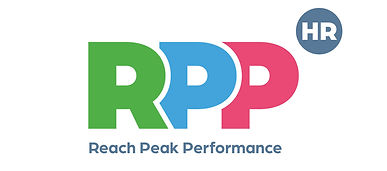Competency Based Interviews – what are they and why do companies use them?
- Emma Bisseker
- Apr 18, 2024
- 3 min read
Updated: May 20, 2024

Many companies have adopted competency-based interviews as a structured approach to assessing a candidate’s suitability for a role.
Competency-based interviews focus on evaluating a candidate’s skills, knowledge and behaviours that are directly relevant to the job requirements.
This style of interview can be beneficial for several reasons. They provide structure, align to the role and/or behaviours and/or values of the organisation, keep the interview on track, ensure consistency for candidates. Let’s take a look at some other reasons that companies choose to use competency-based interviews:
Job Relevance
Competency-based interviews are designed to align with the specific competencies or skills required for success in a role.
Predictive Validity
*Research has shown that competency-based interviews have a higher predictive validity compared to traditional interviews. By assessing specific competencies, employers believe they can better predict a candidates’ future job performance.
Objective Evaluation
Competency-based interviews aim to reduce bias in the hiring process by focusing on observable behaviours and concrete examples. Interviewers evaluate candidates based on their demonstrated competencies rather than subjective impressions.
Consistency
The structured nature of competency-based interviews allows for a consistent and standardised evaluation process. This helps ensure that all candidates are assessed on the same set of criteria, making the overall hiring process more fair and reliable (provided that interviewers stick to the script).
Skills Assessment
These interviews provide a platform for candidates to showcase their skills through real-life examples. Interviewers can delve into specific situations where candidates applied certain competencies, offering a more in-depth understanding of their capabilities.
Behavioural Insights
Competency-based interviews often explore a candidate’s past behaviour as a predictor of future performance. By understanding how candidates have responded to situations in the past, employers gain some insights into their problem-solving abilities, interpersonal skills, and decision-making processes.
Targeted Hiring
Companies can tailor competency-based interviews to specific roles and organisational goals. This allows them to identify candidates who not only possess the necessary skills but also align with the company’s values and culture.
In summary, the competency-based interviews provide a structured and objective approach to evaluating candidates, helping companies make more informed hiring decisions that align with the requirements of the role.
What might a competency-based interview look like?
Interview structures will as will the assessment process. The below is an example only.
Question Structure:
Competency-based interviews focus on specific skills, behaviours, and experiences relevant to the job role.
Interviewers ask questions related to competencies expected for the position so it’s important to do your homework and read through the job description in detail.
Common questions include scenarios like dealing with pressure, conflict resolution, time management, and communication skills.
Marking Process
Each interviewer independently assesses your responses.
They use a predefined scoring scale (usually 1 to 5) to evaluate your performance.
Positive Indicators:
Higher scores are given for:
Demonstrating relevant skills.
Providing clear examples using the STAR model – Situation Task Action Result
Showing self-awareness and adaptability.
Negative Indicators:
Lower scores result from:
Lack of relevant examples.
Lack of structure to response which results in an example that may confuse or not communicate the message clearly.
Inability to address the competency.
Poor communication or problem-solving.
Scoring Scale:
Typically (but not limited to):
1: No evidence.
2: Limited evidence.
3: Adequate evidence.
4: Good evidence.
5: Strong evidence.
Final Decision:
Interviewers discuss and finalize scores.
High-scoring candidates proceed to the next stage.
*If you want to find out more you can use google to look at the research that’s been done. If you do, you’ll see that competency-based interviewing has been around for some time. There are other sources to use to search for information on this type of interview too.



Comments